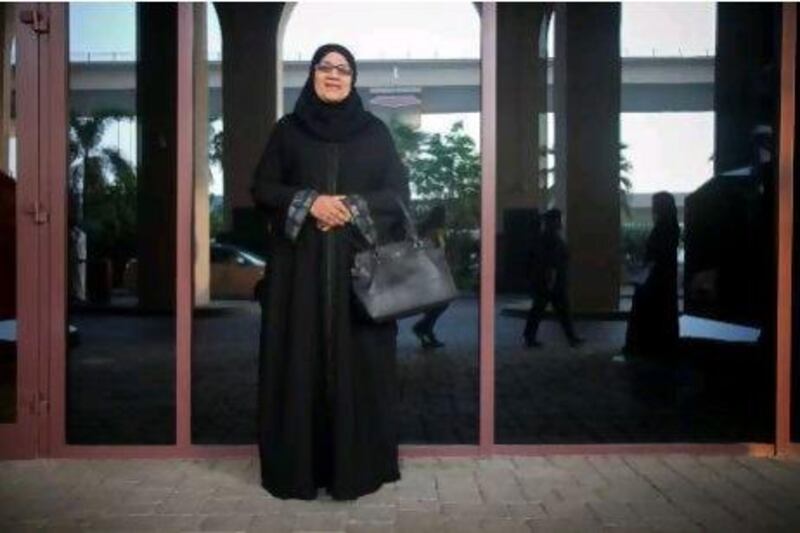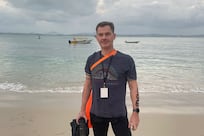DUBAI // When Professor Zakiya Al Lamki's son was nine months old he began to cry and would not stop.
Speaking at Dubai's Orphan Diseases and Genetics in the Middle East conference, the paediatrician from Sultan Qaboos University Hospital in Oman yesterday recounted the experience of raising her son, Abdullah.
"He was crying, crying, crying … it was unbelievable. He was crying day and night continuously to the extent that the cries are still ringing in my head now," she said.
"At that time we moved to a new house, and friends and relatives felt that maybe the house was haunted and this infant was possessed by a djinn [demon]."
Eventually the family sought help at London's Great Ormond Street Hospital, where Professor Al Lamki had trained, and the condition was diagnosed as ornithine transcarbamylase deficiency.
The genetic disorder prevents the body from flushing ammonia, which then accumulates and causes serious problems such as encephalitis, an inflammation of the brain. But the condition is an "orphan disease" - one so rare that, in the past, drug companies were unwilling to take responsibility for developing treatments because there were not enough patients to justify the investment.
It is one of a range of genetic disorders that occur much more often in the Arabian Gulf region than in the rest of the world. Abdullah is now 30, a graduate in law from the UK's Warwick University who works for an oil company.
His condition is controlled by medication produced by Sobi, a Swedish pharmaceutical company that this week opened an office at the DuBiotech life sciences park in Dubai.
Sobi specialises in producing drugs to treat orphan diseases and pioneered the treatment of the genetic blood disorder thalassaemia.
Chief operating officer Alan Raffensperger said: "Our job here is to bring the products that mean the most to patients in the Middle East."
Dr Moeen Al Sayed, chairman of the department of medical genetics at the King Faisal Specialist Hospital in the Saudi capital, Riyadh, said: "Rare diseases are not so rare in this region. The most important reason for this is the excessive consanguinity that we have in the region.
"Related to this of course we have communities that have lived very much within their own domain, they have married within their own domain. This has made certain diseases in the region very prevalent."
He said the incidence of a range of genetic disorders known as inborn errors of metabolism diagnosed by newborn screening in Saudi Arabia was one in 900, and added: "This is one of the highest in the world."
Professor Al Lamki said: "The challenge we face is a lack of awareness generally. It's a new area, many doctors are not familiar. We, families and doctors, have to help each other to learn and to understand what is going on."





